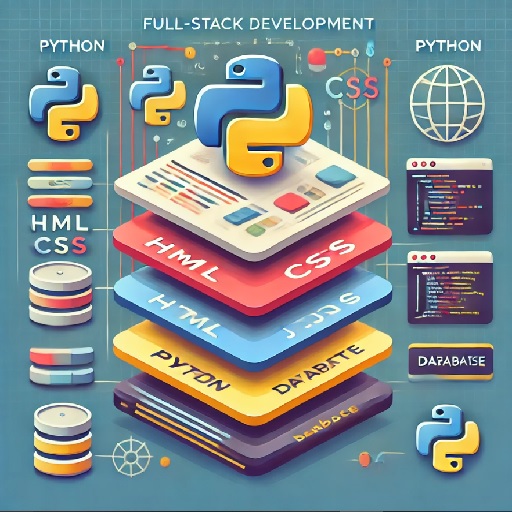
Please wait.

Please wait.

Full Stack Development with Python: Complete Modules and Roadmap
Full stack development with Python involves learning the frontend, backend, databases, version control, and deployment to build and deploy web applications effectively. Here’s a detailed roadmap:
1. Fundamentals of Programming
Modules:
Python Basics: Variables, data types, operators, and control flow.
Object Oriented Programming (OOP): Classes, objects, inheritance, and polymorphism.
File Handling: Reading and writing files in Python.
Exception Handling: Try, except, finally.
Tools: Python 3.x, Jupyter Notebook, or any IDE (VS Code/PyCharm).
2. Frontend Development
– HTML5:
– Semantic elements (header, footer, article).
– Forms, multimedia (audio/video), and canvas.
– CSS3:
– Styling: Flexbox, Grid, transitions, animations.
– Responsive Design: Media queries and Bootstrap.
– JavaScript (JS) :
– Basics: Variables, loops, and functions.
– DOM Manipulation: Selecting and modifying HTML elements.
– ES6+ Features: Arrow functions, promises, and destructuring.
– Frontend Framework (Optional) :
– Basics of React.js or Vue.js.
– Tools : CodePen, Bootstrap, Chrome DevTools.
– Timeframe : 4 6 weeks.
—
3. Backend Development with Python
– Modules :
– Introduction to Web Development:
– HTTP/HTTPS, REST APIs, request response cycle.
– Flask or Django (Choose one):
– Flask:
– Setting up routes, templates, and Jinja2.
– Middleware, blueprints, and REST API development.
– Django:
– MTV architecture, models, and migrations.
– Admin panel and authentication.
– Authentication:
– User registration, login, and JWT (JSON Web Tokens).
– API Development:
– Creating APIs using Flask/Django REST Framework.
– Tools : Postman, Insomnia, Flask/Django.
– Timeframe : 6 8 weeks.
—
4. Databases
– Modules :
– SQL:
– Basic CRUD (Create, Read, Update, Delete).
– Joins, subqueries, and indexes.
– Relational Databases :
– MySQL/PostgreSQL: Setting up and connecting with Python.
– NoSQL Databases :
– MongoDB: Collections, documents, and queries.
– ORM (Object Relational Mapping):
– SQLAlchemy (Flask) or Django ORM.
– Tools : MySQL Workbench, MongoDB Compass.
– Timeframe : 3 4 weeks.
—
5. Version Control and Collaboration
– Modules :
– Git Basics:
– Cloning, commits, branches, and merges.
– GitHub/GitLab :– Repository management, pull requests, and issues.
– Team Collaboration:
– Best practices for managing repositories in a team.
– Tools : Git CLI, GitHub Desktop.
– Timeframe : 1 2 weeks.
—
6. Advanced Backend Concepts
– Modules :
– Web Security:
– CSRF, XSS, CORS, SQL Injection.
– Asynchronous Programming:
– Asyncio and Celery for task queues.
– WebSockets:
– Real time communication using Flask SocketIO or Django Channels.
– Testing:
– Unit Testing with Pytest or Unittest.
– Tools : Pytest, Postman.
– Timeframe : 3 4 weeks.
—
7. DevOps and Deployment
– Modules :
– Deployment Basics:
– Hosting on platforms like Heroku, AWS, or Azure.
– Web Servers:
– Nginx and Gunicorn.
– CI/CD Pipelines:
– Using GitHub Actions or Jenkins.
– Docker Basics:
– Creating Dockerfiles and running Python apps in containers.
– Cloud Services:
– Setting up databases and storage on AWS/GCP.
– Tools : Docker, Heroku CLI, AWS CLI.
– Timeframe : 4 6 weeks.
—
8. Advanced Frontend (Optional)
– Modules :
– JavaScript Frameworks:
– React.js or Angular: Components, routing, and state management.
– Progressive Web Apps (PWAs):
– Service workers and caching.
– Advanced CSS:
– SASS/SCSS, CSS in JS (e.g., styled components).
– Tools : npm, webpack, VS Code.
– Timeframe : 4 6 weeks.
—
9. Capstone Project
– Modules :
– Plan and Develop:
– Create a full stack web application (e.g., E commerce platform, blog, or portfolio).
– Use all components:
– Frontend (HTML, CSS, JS).
– Backend (Flask/Django).
– Database (SQL/NoSQL).
– Authentication and APIs.
– Deploy to production (Heroku, AWS, or similar).
– Timeframe : 4 6 weeks.
Tools to Use:
– IDE : VS Code, PyCharm.
– Frontend Tools : Bootstrap, Chrome DevTools.
– Backend Tools : Flask/Django, Postman.
– Database Tools : MySQL Workbench, MongoDB Compass.
– Version Control : Git CLI, GitHub.

We are Education, create your passion and inspiration. And hope success will come for your dream. Please send email and get latest news.